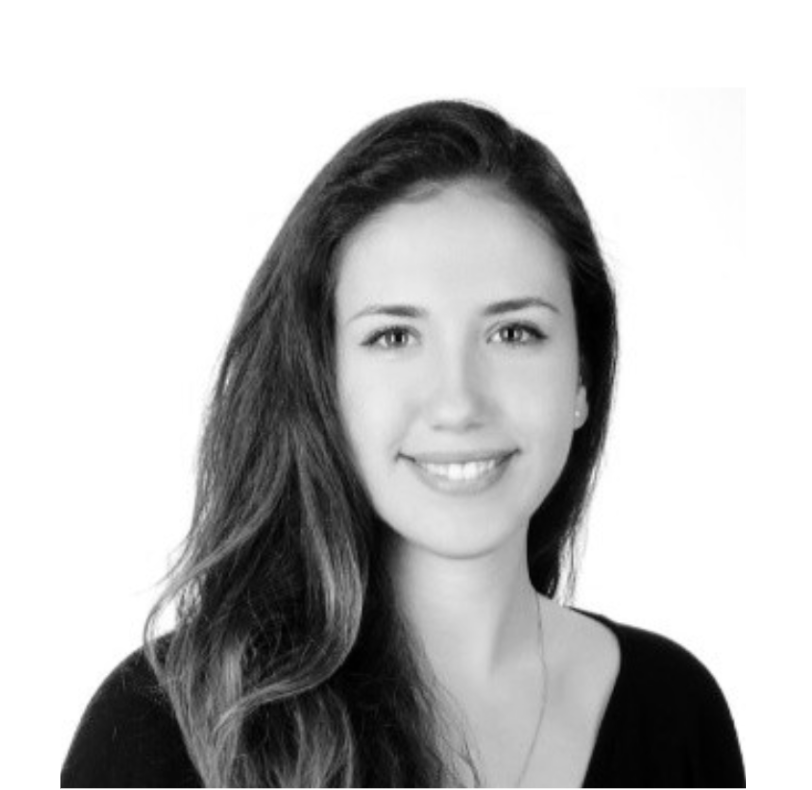5 Questions with Sera Evcimen, Mentor in Residence at Techstars Sustainability Paris Accelerator
Mar 07, 2023

Sera Evcimen is a Mechanical Engineer and Technical Program Manager who has recently founded her own start-up advising company, Pratik Development. She has worked in multiple start-ups in industries including space, consumer electronics, fusion energy, and robotics. She specializes in the scaling of complex systems from prototype to production and technical corporate strategy.
In addition to being a Mentor in Residence at Techstars Sustainability Paris, she will be releasing a podcast on modern hardware development called “The Builder Circle” later this year through her company Pratik.
01. What are you looking for in startups when accepting to become a Mentor?
On the team side, I look for entrepreneurs that are naturally curious, passionate, compassionate, and inquisitive. It’s okay to not have the exact answers for every problem that comes with building a product/company but the grit and character of the teams make or break the mission. On the more technical side, I am personally very interested in complex physical systems that teams are trying to get from a sketch on a napkin to be in the world.
The most urgent problem we have to solve is to reverse the effects of climate change and there is a desperate need for companies working on clean energy, reduction of waste, and carbon. This is why I chose to be a part of the Techstars Sustainability accelerator in Paris as it is the hub for global companies focused on this mission.
02. What are some of the biggest learnings from your career and entrepreneurial journey that you bring as a Techstars Mentor?
There is no one size fits all in strategy and practice. When developing a product, a business and a company there are many practices that exist from program management, engineering, operational strategy and business development. Without reinventing the wheel, striking the correct balance in these practices is one of the most important meta-cognitive exercises entrepreneurs should go through.
Failing fast, learning fast is necessary (of course within bounds). As start-ups tackle new and exciting problems oftentimes there are a lot of unknowns but the more you are able to unearth the unknowns the closer you are to success. In order to understand what you are building you need to understand what doesn’t work. Dyson is the greatest example in this, it took them nearly 1000 prototypes to get to the right one. So my biggest learning has been to; build even if it is imperfect, test even if you are scared it will break and document everything you learn along the way.
Never move forward with assumptions, always verify. The biggest domino effect issues I’ve seen in start-ups have been due to one or multiple instances of unchecked assumptions. This can cost time, effort and wasted capital on projects. It is very important to trust your peers but always verify and have that weaved into the culture of the team.
Don’t let the best solution take away from the good enough. Oftentimes technical entrepreneurs focus on the state of the art technology, the cutting edge of development which is incredibly fun and exciting I have to admit. However, it is really important to always make sure that you are not just innovating but actually providing a solution and after development make sure it is the right solution.
03. What is your favorite thing about the Paris startup scene?
There are many things I love about the scene but to summarize; the people, the energy, and the mission. Paris Techstars embodies the urgency for the need for action regarding climate change as well as a very strategic approach to investment to get the right companies funded so that they can change the course of global warming. It’s been very rewarding to be a part of the Paris Techstars community.
04. Describe a situation with a startup founder or team where you felt like you made a difference.
I’ve had the privilege of working with nearly all of the hardware companies in the cohorts. One instance that pops into my mind is that one company was producing a component in a very manual way that was costing a lot of money and time. I was able to come up with an equipment design idea that they were able to purchase later that automated the process and significantly reduced the cost of manufacturing.
Other than that specific example with the rest of the cohort, the most rewarding has been to see the entrepreneurs light up and get excited about producing their product because there is less ambiguity around where they should start, what they should do, and how they should do it.
05. If you could have coffee with any entrepreneur who would it be and why?
Probably David Kelly from IDEO Labs. I find the way he thinks about design and technical culture development fascinating. He was the original designer of the Apple magic mouse. I would be interested to get his perspective on the industrial/creative design space as that is not something I am particularly familiar with.
For the latest news on our applications, please visit our page.
